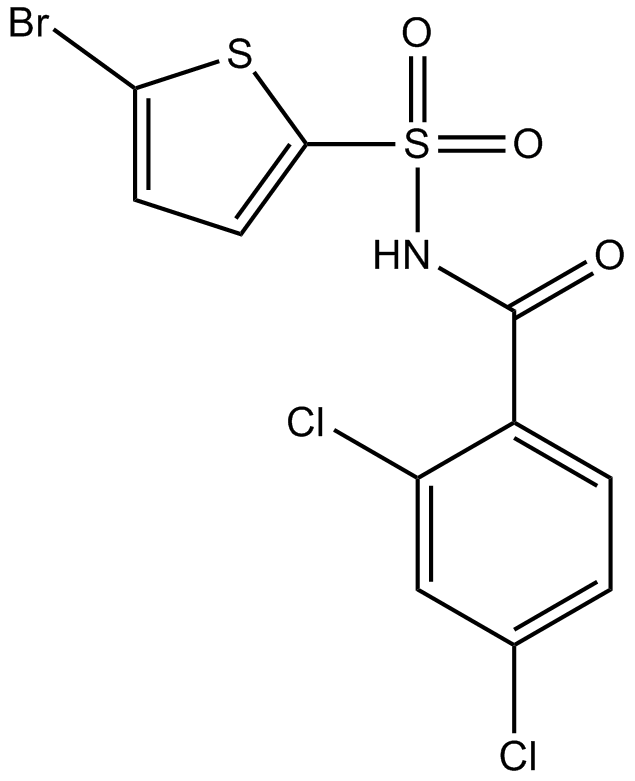All AbMole products are for research use only, cannot be used for human consumption.

LY573636 is a novel anticancer agent that induces apoptosis through the intrinsic pathway and has antiangiogenic activity in preclinical models. LY573636 demonstrated activity across a broad range of tumors, including melanoma. LY573636 causes growth arrest and apoptosis of a variety of human solid tumors in vitro and in vivo. LY573636 administered at a targeted C(max) of 420 μg/mL on Day 1 of 21-day cycles demonstrated activity and tolerable toxicity as second-line treatment in malignant melanoma. LY573636 is selectively toxic towards tumor cells over their normal counterparts.
| Molecular Weight | 415.11 |
| Formula | C11H6BrCl2NO3S2 |
| CAS Number | 519055-62-0 |
| Solubility (25°C) | DMSO 73 mg/mL |
| Storage |
Powder -20°C 3 years ; 4°C 2 years In solvent -80°C 6 months ; -20°C 1 month |
| Related Caspase Products |
|---|
| Z-VAD
Z-VAD is a competitive, irreversible pan-caspase inhibitor. Z-VAD inhibits all 10 caspases, except for caspase-2 which is only weakly inhibited. Z-VAD decreases radiation-induced apoptosis. |
| PEAQX
PEAQX (NVP-AAM077) is an orally active and selective NMDA antagonist, with IC50 values of 270 nM and 29.6 μM for hNMDAR 1A/2A and hNMDAR 1A/2B, respectively. |
| MMPSI
MMPSI is a potent and selective small molecule caspase 3 and caspase 7 inhibitor with an IC50 of 1.7 μM for human caspase-3. |
| Ivachtin
Ivachtin (Caspase-3 Inhibitor VII; compound 7a) is a nonpeptide, noncompetitive and reversibl caspase-3 inhibitor with an IC50 of 23 nM. |
| VMY-1-103
VMY-1-103 is an inhibitor for cyclin/Cdk complex, that arrests the cell cycle at G1 phase. |
All AbMole products are for research use only, cannot be used for human consumption or veterinary use. We do not provide products or services to individuals. Please comply with the intended use and do not use AbMole products for any other purpose.


Products are for research use only. Not for human use. We do not sell to patients.
© Copyright 2010-2024 AbMole BioScience. All Rights Reserved.
